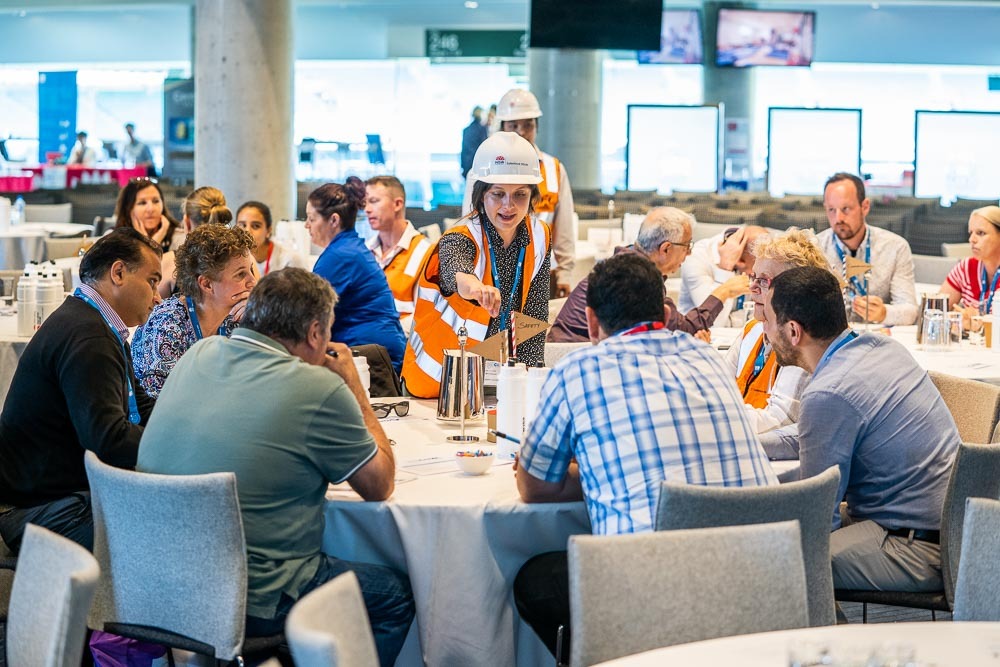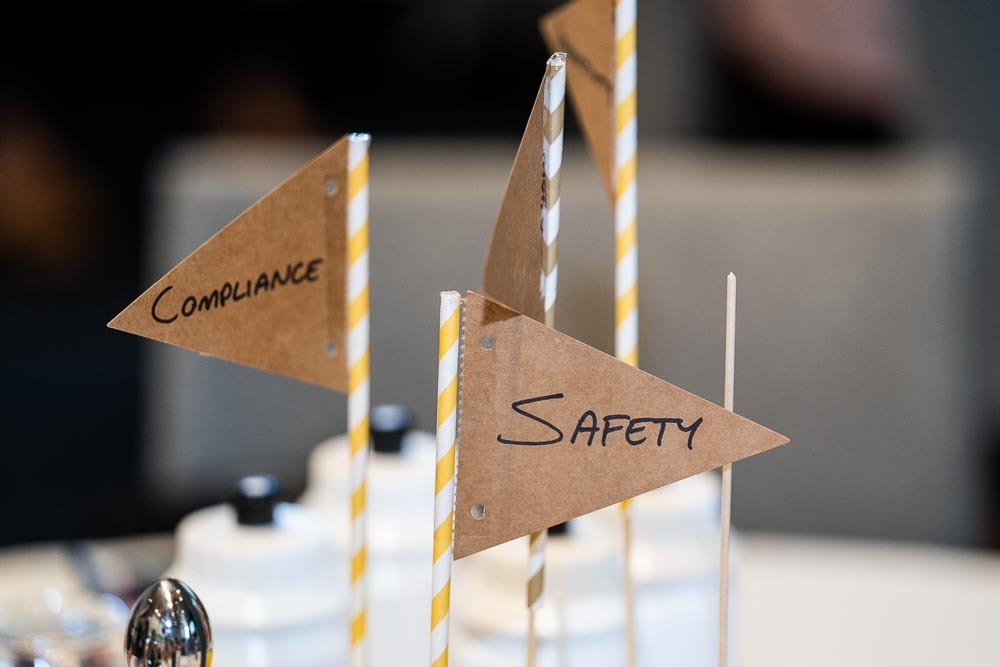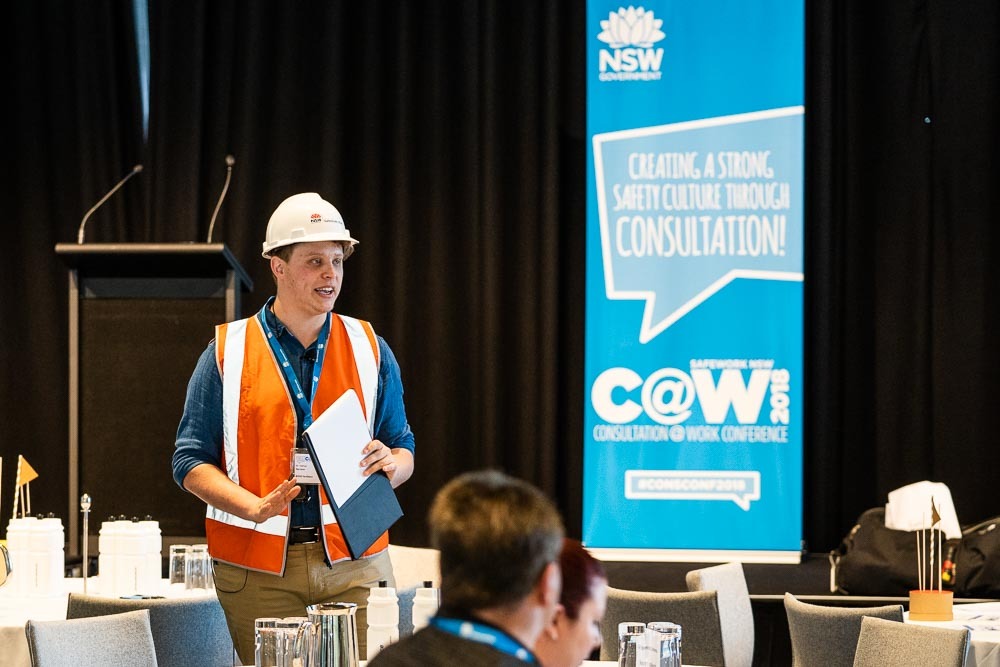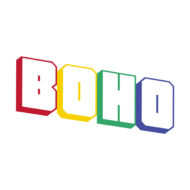Hello! If you’ve made it to this page, you can find our updated blog here.
Games Nights and New Workshops: An Update on Boho in 2022
Hi there! Nathan here with a quick update on what we’ve been up to lately, and what we’ve got on the horizon.
Last month we ran a couple of events in Canberra and Sydney, showcasing games from recent projects and showing off the wonderful design work by Julia Johnson. Thanks to everyone who made it out, and thanks to Events ACT for helping make the Canberra event possible.
One of the projects we were showing off was Canberra 2060, which was commissioned by Canberra Theatre Centre in late 2020. In this game, players worked together to safeguard the city of Canberra (and their own suburbs) against hazards of the 21st Century, by building different types of resilience for the city.

We also ran a couple of games from Get the Kids and Run, our collaboration with Earth Observatory Singapore and the Singapore Science Centre. We played Busy Mayors, where incumbent mayoral teams have to balance election campaigning against the threat of a typhoon, and Volcano Town, which explores how cities come to be in areas prone to disaster.

We got to try out a couple of games we made with the School of Cybernetics, including CAPTCHA Game, where players are young artificial intelligences learning what constitutes a fire hydrant, and The Wild Temptations of Olympic Village, where players navigate the ethics of biometric data to guide the Olympic water polo team to gold.

And lastly, we got to share a game from A Week in the Bush, our collaboration with The Lowitja Institute creating games about ethical research practice in Indigenous communities. In the game New in Town, players were tasked with investigating a failed health research project in a remote community, and finding out what people really needed.

We were also lucky to be joined in Canberra by Dr Ben Swift, who led a fascinating chat about feedback loops and structures of power.

Outside of those events, we’ve been developing new workshops, suitable for teambuilding or as a primer for systems thinking and disaster preparedness.
We’ve given Best Festival Ever an update, with new bands, a couple new challenges and a fresh coat of paint. Last week we ran it for the Masters cohort at ANU’s School of Cybernetics, which was an absolute pleasure.
On top of that, we have a brand-new workshop called Save Grandma, drawing on our collaboration with Earth Observatory Singapore. This workshop explores disaster preparedness, resilience and decision making in times of crisis.

We’re available to run these workshops and more between now and the end of June. If you’d like to book a session, or have a conversation about collaborating on something new, get in touch!
Destiny’s Child and Remote Games

“an actor in a complex system controls almost nothing, but influences almost everything”
– Scott Page
Hi! Nathan here. I hope wherever you’re reading this from you’re doing well, and taking care of yourself.
The week before everything collapsed and we all went home for a few months Nikki, Muttley and I spent a day with the 3AI Institute at ANU. We ran a couple of sessions of Best Festival Ever, where one of the groups managed to get a crowdfunded music festival running, only to resort to a scorched earth policy the moment things took a turn for the worse. It was wonderful chatting to the staff and students about the process of making Best Festival Ever, and how the game is impacted by different playstyles.
The last few months has been an interesting time to think about remote interaction – how games can be delivered digitally but still create a meaningful, live experience. Over the last few years we’ve toyed with games that can be self-facilitated, and remote games present an opportunity to pursue that. When a game is run by someone who downloaded it ten minutes beforehand it has to be clear and very difficult to break – we can’t rely on our charm and improvisation skills to smooth out the wrinkles.
So we’ve been playing a bunch of games, and messing around with things like Twine, and David’s been making some lovely little games with Coney in the UK – check them out over here.
We’ve also been talking to some groups about some new commissions– games looking at systems like health research, and the ways that cities can recover from shocks. There’s going to be some big conversations over the next little while and we’re eager to engage.
If you’ve got an idea for a project you’d like to work with us on, or some interesting remote games you think we should play, drop us a line!
Building a new work for Safework NSW’s Consultation@Work Conference

At the end of October, for Safework NSW’s Consultation@Work Conference, we presented a consultation best practice workshop. Participants included workers and health safety representatives from around the state, and we were assisted by Health and Safety Inspectors who guided conversations with their expert knowledge.
The workshop was developed over several meetings with inspectors and Safework NSW staff. In these meetings we linked systems science to issues of workplace health and safety, and built a narrative featuring a workplace incident and characters occupying different roles in a factory. We wanted to present decisions that were hard to make, and scenarios that would provoke discussion.
Throughout the workshop, participants took part in several games responding to the events in the narrative – prioritising workplace values, managing a safe factory floor, and responding to a crisis. The narrative and games served as a reference point for conversations with the inspectors, where participants could respond to the narrative, discuss their own experiences, and develop strategies for better consultation practice in their own workplace.

We took elements of previous games, including Best Festival Ever and Run A Bank, and tried to pack a narrative and repeated games into a tight 60 minutes. Another challenge was building the workshop for over 100 people across 18 tables, but with the tables working towards a common goal. We designated the tables as Workers, Managers, and Health Safety Reps, and led them through some games that were just for the table, and other games where collaboration and consultation with other tables was crucial for success. The tables also provided an opportunity for people to role-play to a particular perspective.
It was interesting seeing people take on roles in a workplace they don’t usually occupy. One table was characterised as managers and clearly justified their priorities early on, before reflecting after the game that were they to play again they would reverse them completely. We noticed the ultimate goal stay the same between tables – the goal of safety in the workplace – but the strategies to get there were different, and those strategies were all based on different perspectives. The inspectors did a wonderful job of unpacking these experiences in the context of safety regulation and workplace culture.
 Working with Safework NSW was an exciting opportunity to adapt our games and skills to a new setting, and work directly with experts in a field with which we don’t have much experience. Like many of our processes, this development was all about listening and finding games to communicate stories from a group of experts. On the day the participants played hard, only suffered a few minor disasters, and had animated discussions rich in experience and passion. Plus Nathan got to meet Adam Spencer.
Working with Safework NSW was an exciting opportunity to adapt our games and skills to a new setting, and work directly with experts in a field with which we don’t have much experience. Like many of our processes, this development was all about listening and finding games to communicate stories from a group of experts. On the day the participants played hard, only suffered a few minor disasters, and had animated discussions rich in experience and passion. Plus Nathan got to meet Adam Spencer.
A performance for Safework NSW

At the end of October, for Safework NSW’s Consultation@Work Conference, we presented a consultation best practice workshop. Participants included workers and health safety representatives from around the state, and we were assisted by Health and Safety Inspectors who guided conversations with their expert knowledge.
The workshop was developed over several meetings with inspectors and Safework NSW staff. In these meetings we linked systems science to issues of workplace health and safety, and built a narrative featuring a workplace incident and characters occupying different roles in a factory. We wanted to present decisions that were hard to make, and scenarios that would provoke discussion.
Throughout the workshop, participants took part in several games responding to the events in the narrative – prioritising workplace values, managing a safe factory floor, and responding to a crisis. The narrative and games served as a reference point for conversations with the inspectors, where participants could respond to the narrative, discuss their own experiences, and develop strategies for better consultation practice in their own workplace.

We took elements of previous games, including Best Festival Ever and Run A Bank, and tried to pack a narrative and repeated games into a tight 60 minutes. Another challenge was building the workshop for over 100 people across 18 tables, but with the tables working towards a common goal. We designated the tables as Workers, Managers, and Health Safety Reps, and led them through some games that were just for the table, and other games where collaboration and consultation with other tables was crucial for success. The tables also provided an opportunity for people to role-play to a particular perspective.
It was interesting seeing people take on roles in a workplace they don’t usually occupy. One table was characterised as managers and clearly justified their priorities early on, before reflecting after the game that were they to play again they would reverse them completely. We noticed the ultimate goal stay the same between tables – the goal of safety in the workplace – but the strategies to get there were different, and those strategies were all based on different perspectives. The inspectors did a wonderful job of unpacking these experiences in the context of safety regulation and workplace culture.

Working with Safework NSW was an exciting opportunity to adapt our games and skills to a new setting, and work directly with experts in a field with which we don’t have much experience. Like many of our processes, this development was all about listening and finding games to communicate stories from a group of experts. On the day the participants played hard, only suffered a few minor disasters, and had animated discussions rich in experience and passion. Plus Nathan got to meet Adam Spencer.
